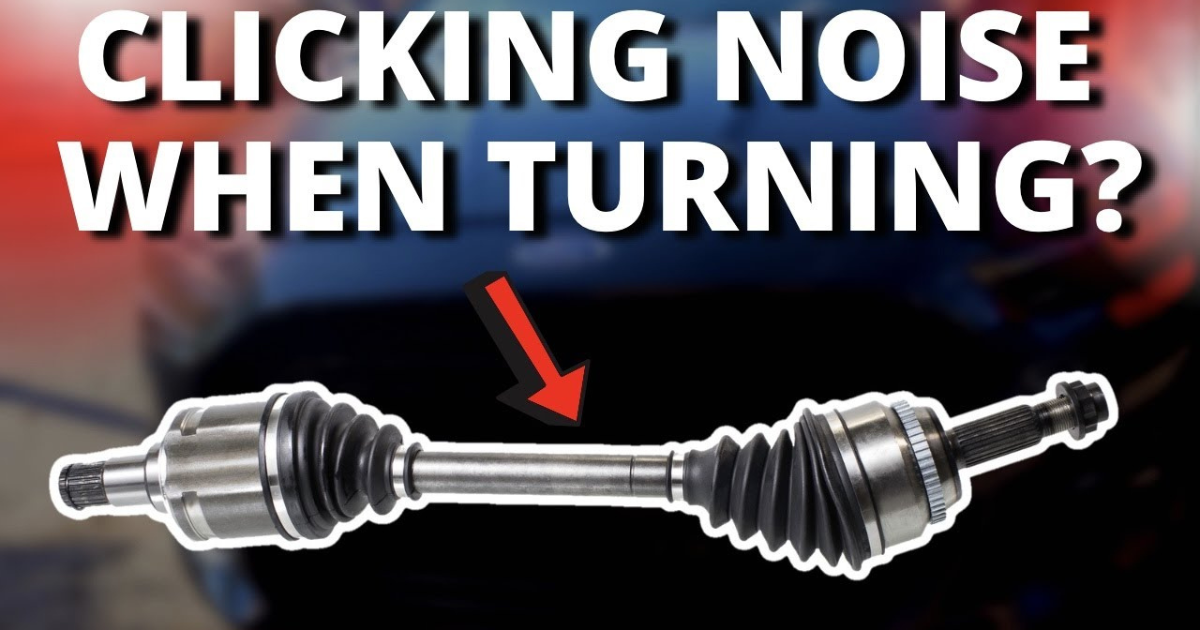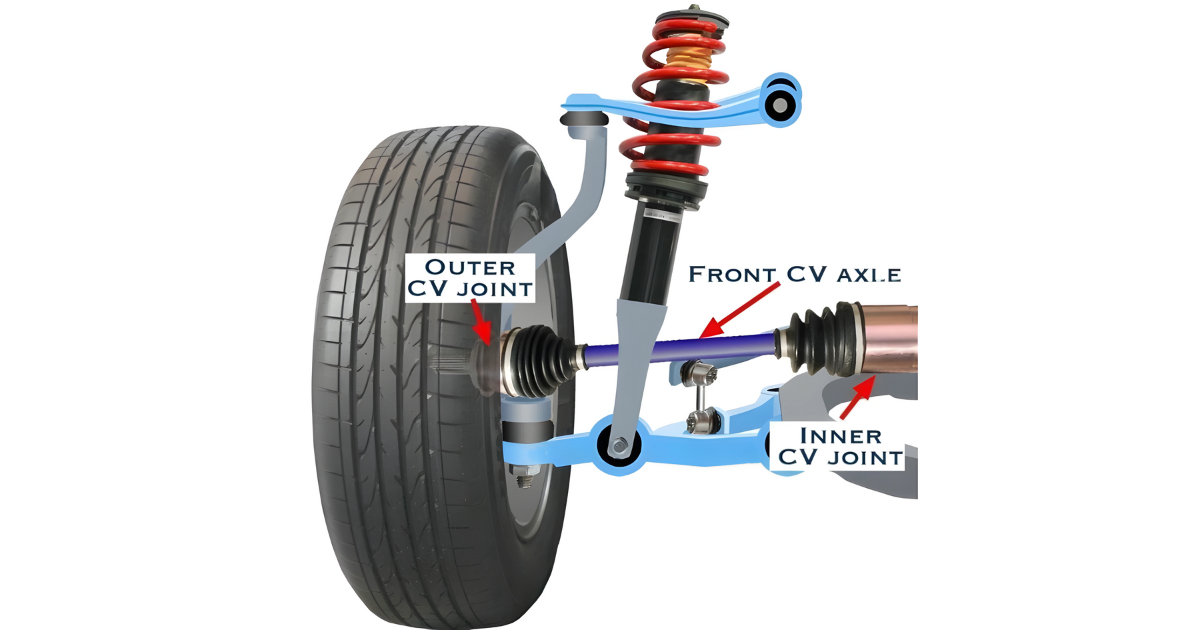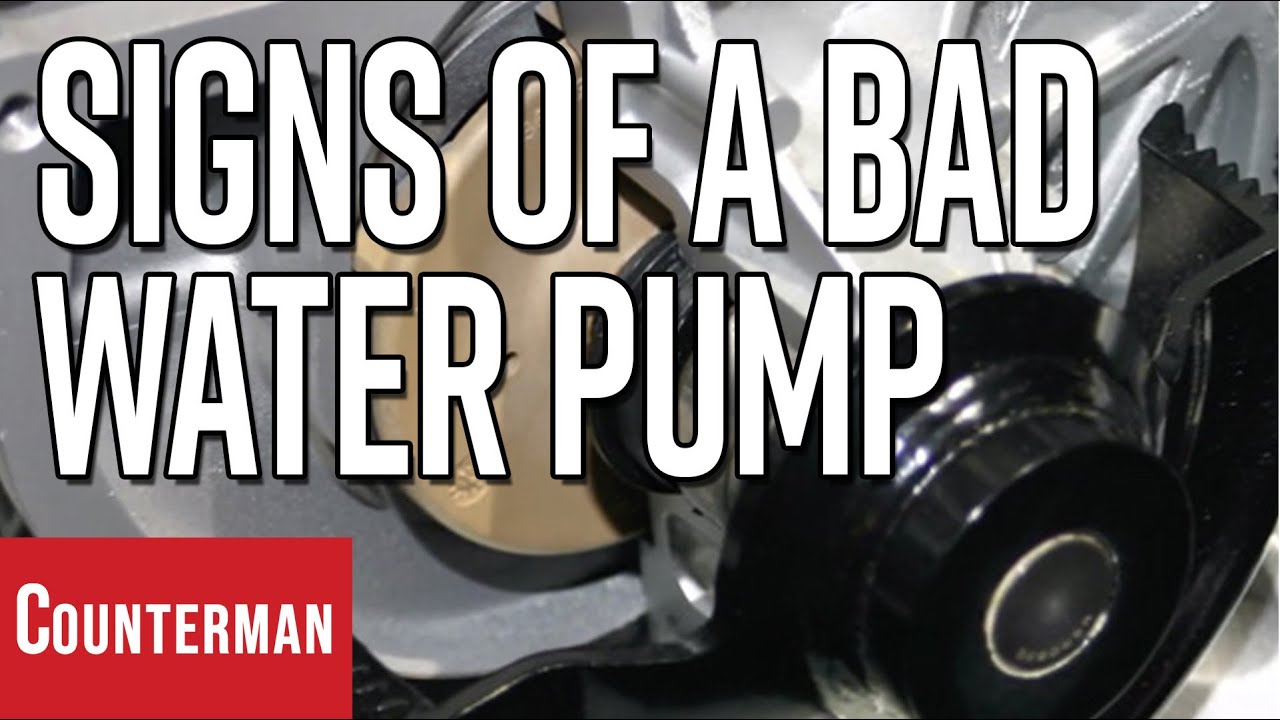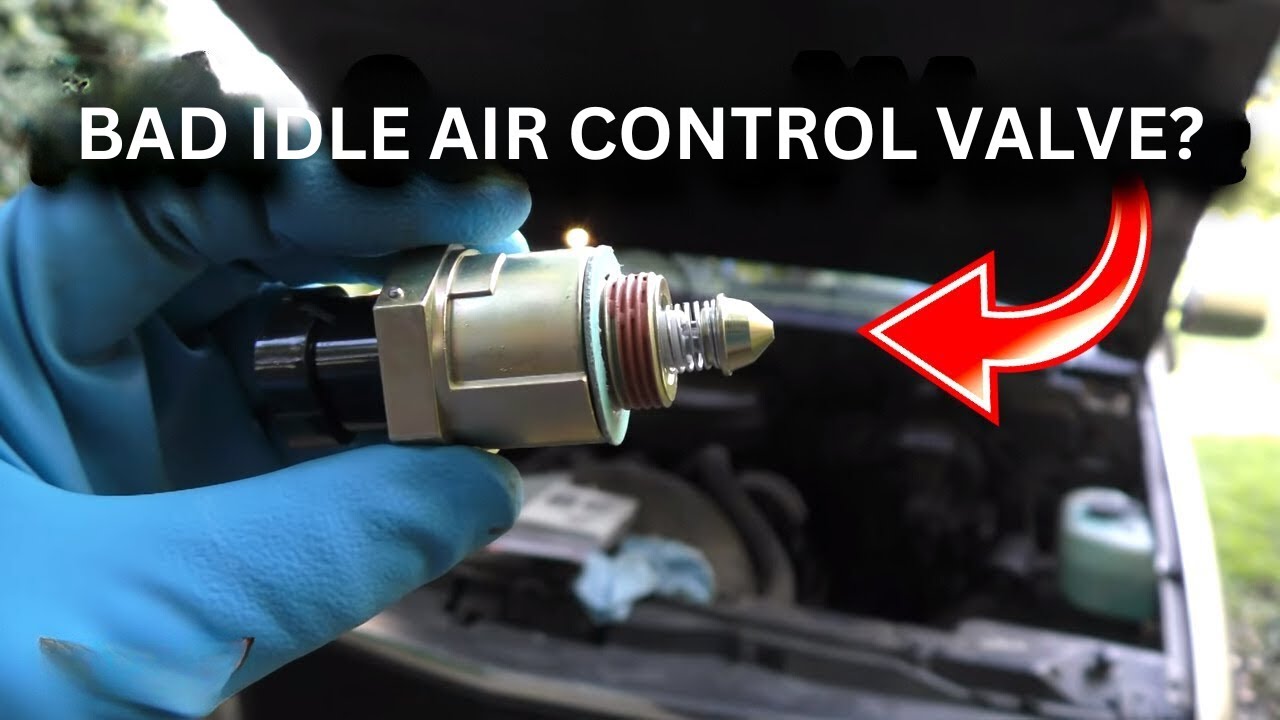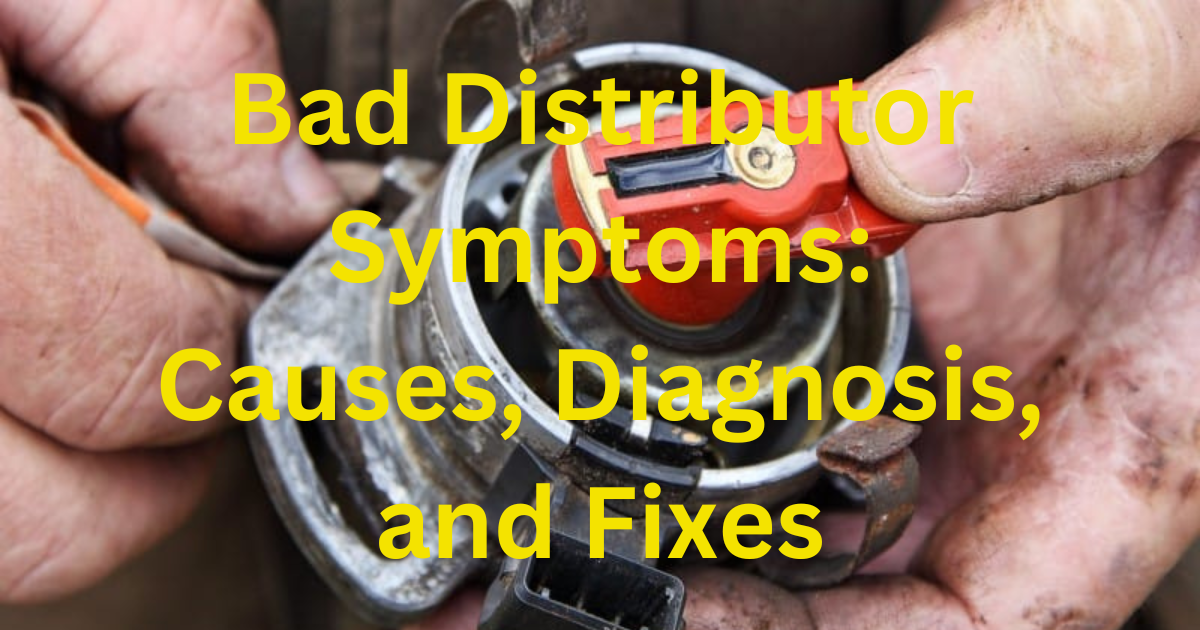Through constant velocity joints, your transmission powers the wheels. These joints simplify steering wheel control. Since this component is crucial to your vehicle’s suspension system, you must recognize the indicators of a malfunctioning CV joint to take precautions.
All autos have CV joints, but locations vary. A rubber boot and outer and inner joints guard CV joints. Bad CV joints are dangerous if undiagnosed. Discover CV joint failure symptoms.
Bad CV joint symptoms

Bad CV joints have 5 common symptoms. If you see any of these symptoms, take your car for repairs:
Driving Vibrations
Due to the many CV joint failures that can cause CV axle vibrations while driving, it can be stressful to locate the source. If the vibrations are severe while accelerating, you may have a bad CV joint or axle. When you feel vibrations in your car, get it checked out because the cause can’t be good.
Tire Edge Grease Flow
The boots of your CV axle joints have grease because the axle rotates while driving. These boots stop oil leaks. If grease appears on your vehicle’s tire edges, especially from a slight crack, you may have a damaged CV joint. Getting this checked out quickly will prevent car damage from spreading.
Dark grease escaping from your wheel indicates that your CV joint has deteriorated due to a lack of lubrication. Before repairing, be sure of the cause.
Growling Or Knocking Sound
Experiencing a growling or knocking sound does not necessarily mean that your vehicle has a damaged CV joint. There are quite a few faults that can occur in your vehicle that cause knocking sounds to be produced while you drive your vehicle. So you need to take your vehicle to the mechanic’s shop for an inspection.
But a faulty CV joint is part of the major faults to consider that can be responsible for this problem. A worn-out or bad CV joint makes your vehicle’s axle system wobble which produces growling or knocking sounds. For FWD vehicles, the noise can be from the inner joints while for RWD vehicles from any section of the joints. Your differential can also produce these types of sounds.
If the sound gets louder, you need to get this checked out immediately, or you can reach out to us to help out. After we conduct a diagnosis on your vehicle, we will be able to hit the actual cause of this problem and get it resolved ASAP.
Noises from the steering wheel turn
When you turn your car’s wheels, steering noise may indicate CV joint problems. Driving with an automobile that makes noises when turning is unusual. You should have your car checked. CV joints that are damaged must be replaced quickly.
Vehicle Bounces While Driving
If your vehicle bounces or hops on uneven pavement or smooth roadways, its CV joints may be problematic. CV joints help prevent driving vibrations. You must confirm the cause.

